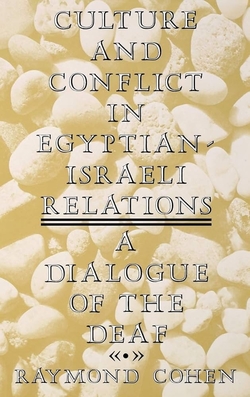 Looking at Egyptian-Israeli diplomacy over a forty-year period, Cohen argues that the main problem facing them was not "irreconcilable interests, megalomaniac ambitions, still less soaring ideals, but a cultural chasm." Indeed, Cohen argues that incomprehension, not malice, lies at the root of many troubled relationships. The usual symptoms are "messages ignored, growing frustration, collision."
Looking at Egyptian-Israeli diplomacy over a forty-year period, Cohen argues that the main problem facing them was not "irreconcilable interests, megalomaniac ambitions, still less soaring ideals, but a cultural chasm." Indeed, Cohen argues that incomprehension, not malice, lies at the root of many troubled relationships. The usual symptoms are "messages ignored, growing frustration, collision."
He draws many contrasts. Israelis use language directly and Egyptians indirectly. Israel has an immigrant society, Egypt is the opposite, a village society. The former has a "low-context" culture and the latter is "high-context." One veers toward understatement, the other to hyperbole. One is preoccupied with security, the other with face. Protocol and bargaining have a very different roles in the two countries, making diplomacy next to impossible. It is for this reason that an outside mediator has sat in on every single negotiation ever conducted between Israel and Egypt.
Culture and Conflict is a tour de force and this reviewer's candidate for 1990 book-of-the-year on the Middle East. Cohen's wide reading and analytic brilliance enable him to offer stunning insights and build a persuasive argument about the importance of culture in relations between states.